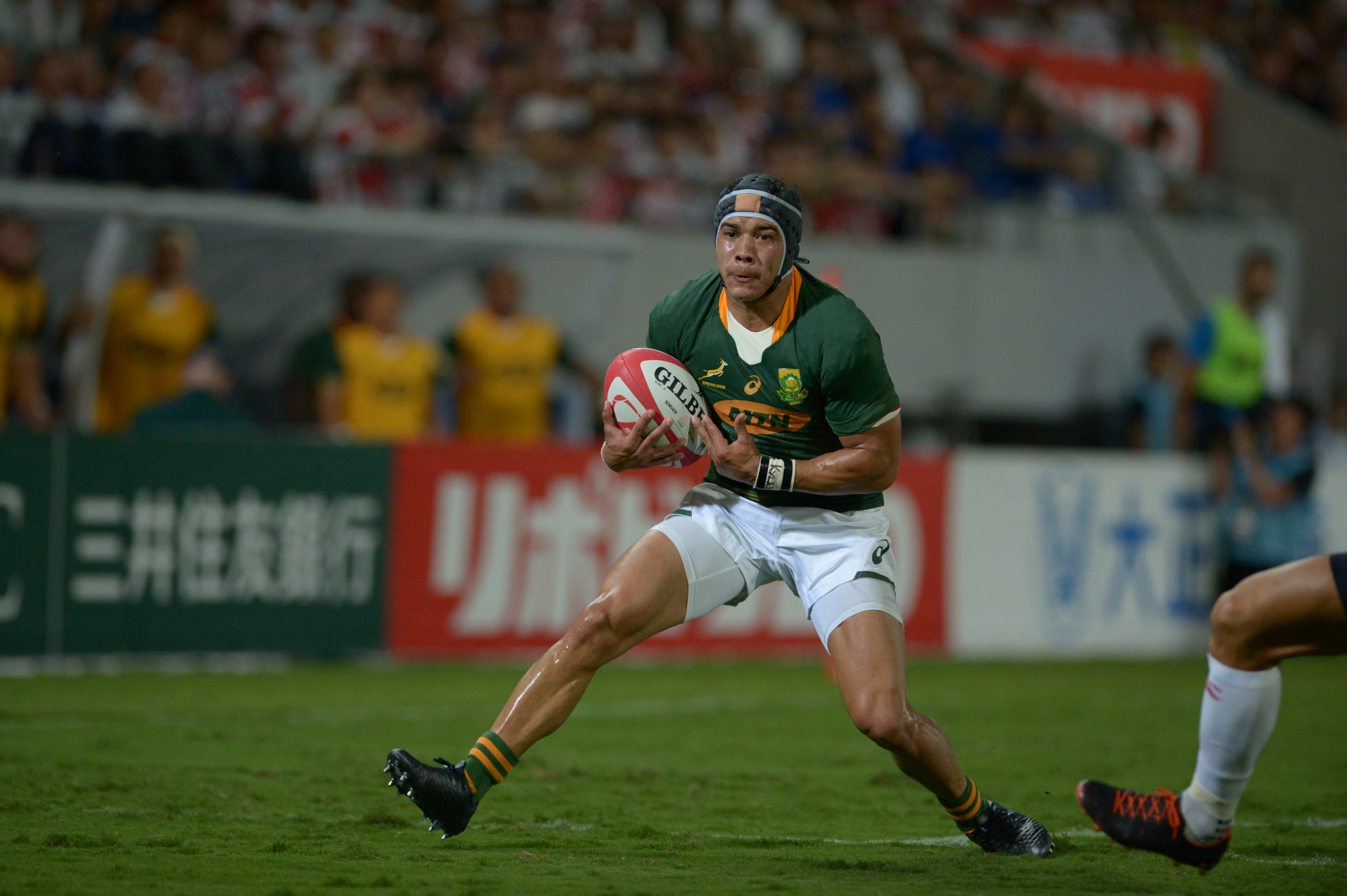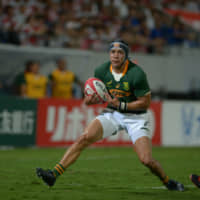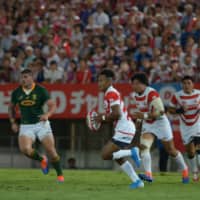Japan failed to claim another famous win over South Africa on Friday as the 2019 Rugby World Cup host lost 41-7 to the Springboks in its final warmup match before the tournament begins later this month.
Japan pulled off an historic upset by beating two-time world champion South Africa 34-32 at the 2015 Rugby World Cup in England, and the Brave Blossoms were looking for a repeat performance at Kumagaya Rugby Stadium to head into this year's tournament with a spring in their step.
Unfortunately for Japan, South Africa had other ideas.
The Springboks crossed the line six times and kept the home side off the scoreboard until Kotaro Matsushima's lone try in the 60th minute, leaving Japan head coach Jamie Joseph with plenty to think about before his team opens its Rugby World Cup campaign against Russia at Tokyo Stadium on Sept. 20. Japan also faces Ireland, Scotland and Samoa in Pool A.
"I'm really proud of the team," said Joseph. "We obviously came up against a really strong South Africa side. We created a lot of opportunities for us to score but through small mistakes the opposition really punished us.
"I thought the game for us was a must-have game. It was a big test match. South Africa selected their best side, which was exactly what we needed and great preparation for us going into the World Cup."
Six members of the South Africa side that lost to Japan in Brighton in 2015 were involved in Friday's game. But Springboks head coach Rassie Erasmus' mind was less on revenge and more on the condition of his team as it prepares for its Rugby World Cup opener against world champion New Zealand in Yokohama on Sept. 21.
"We played against a very strong Japanese team, which we wanted to play before we play the All Blacks," he said. "We got exactly what we expected. The scoreboard was not a real reflection of the game. We've got a lot of tired bodies in there, a lot of tired players. That's what we wanted out of this test match.
"We're lucky we didn't get a lot of injuries, and we think now this puts us on the right track before we play the All Blacks in two weeks' time."
Japan suffered an early setback in Friday's game when flying winger Kenki Fukuoka went down with a knee injury in the fourth minute. Joseph took no chances, replacing him immediately with substitute Ataata Moeakiola. Japan No. 8 Amanaki Lelei Mafi also left the field with a shoulder injury early in the second half.
"Kenki has got what looks like a strained calf muscle," said Joseph. "He did that right at the start of the game, which was obviously disappointing for him and had a real effect on the team's performance, because he's one of the team's best players. Amanaki Mafi took a knock to his shoulder. He should be OK in a week or two."
South Africa opened the scoring three minutes later when Cheslin Kolbe touched down near the corner, and Handre Pollard kicked the conversion.
Japan tried to fight its way back into the game but the home team was dealt a hammer blow when Makazole Mapimpi scored the Springboks' second try in the 23rd minute. South Africa fullback Willie le Roux easily caught Yu Tamura's clearance before passing the ball to Mapimpi, who ran straight past Tamura to touch down.
Mapimpi scored his second try less than 10 minutes later as the Springboks began to run away from Japan, and Pollard kicked a penalty shortly afterward to send South Africa into halftime with a 22-0 lead.
Japan started the second half brightly but was unable to turn pressure into points, and South Africa took advantage when Mapimpi broke through Matsushima's attempted tackle to complete his hat trick in the 53rd minute.
Matsushima redeemed himself in the 60th minute when Japan finally got on the scoresheet. The home team intercepted a loose South Africa ball around the halfway line, and quick thinking by Timothy Lafaele released Matsushima into open space to race home for the try.
But the Springboks weren't finished yet, and Kolbe picked off a poor Tamura pass to sprint the length of the field for a try in the 73rd minute, before substitute Herschel Jantjies rounded off the scoring one minute from time.
"South Africa refused to attack," said Joseph. "For every time they ran the ball, they kicked the ball. They used their defensive pressure and their set-piece pressure to try to slow us down, and they did that very well."


















With your current subscription plan you can comment on stories. However, before writing your first comment, please create a display name in the Profile section of your subscriber account page.